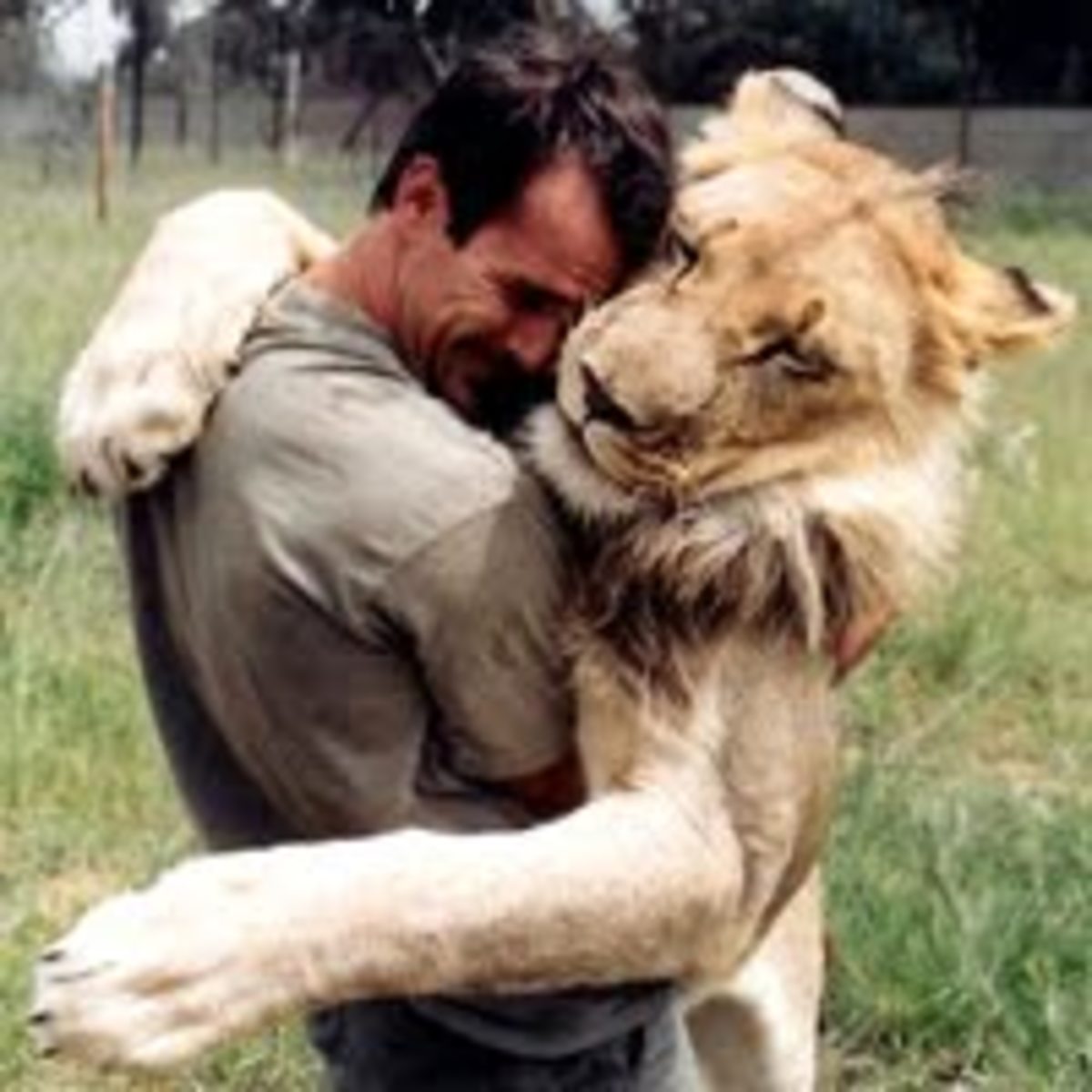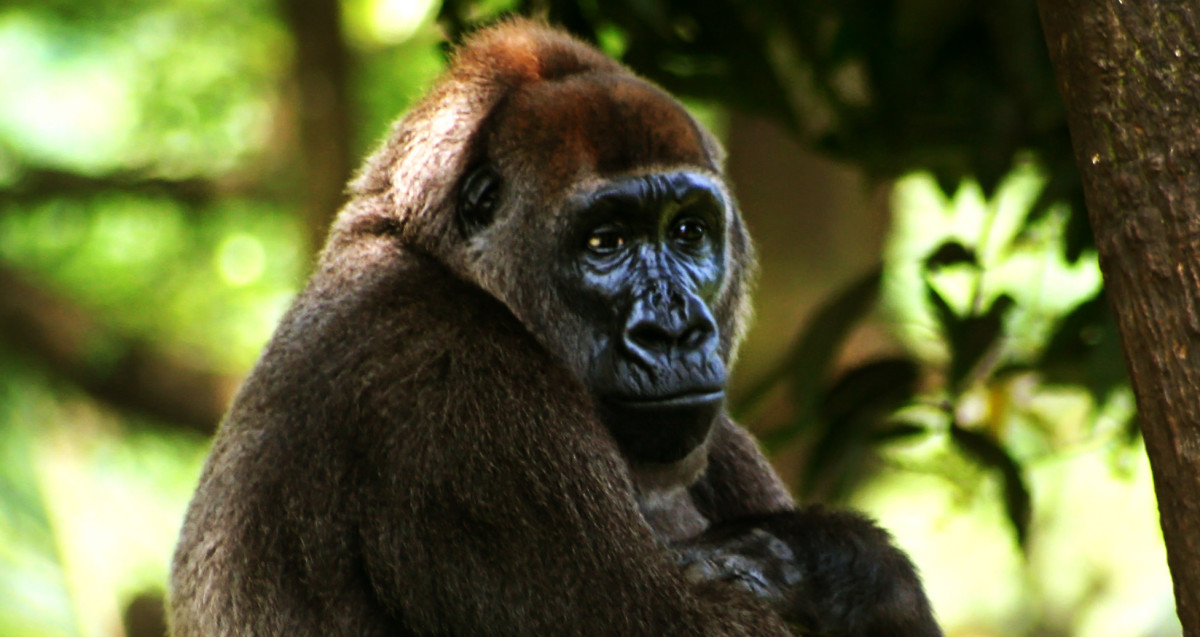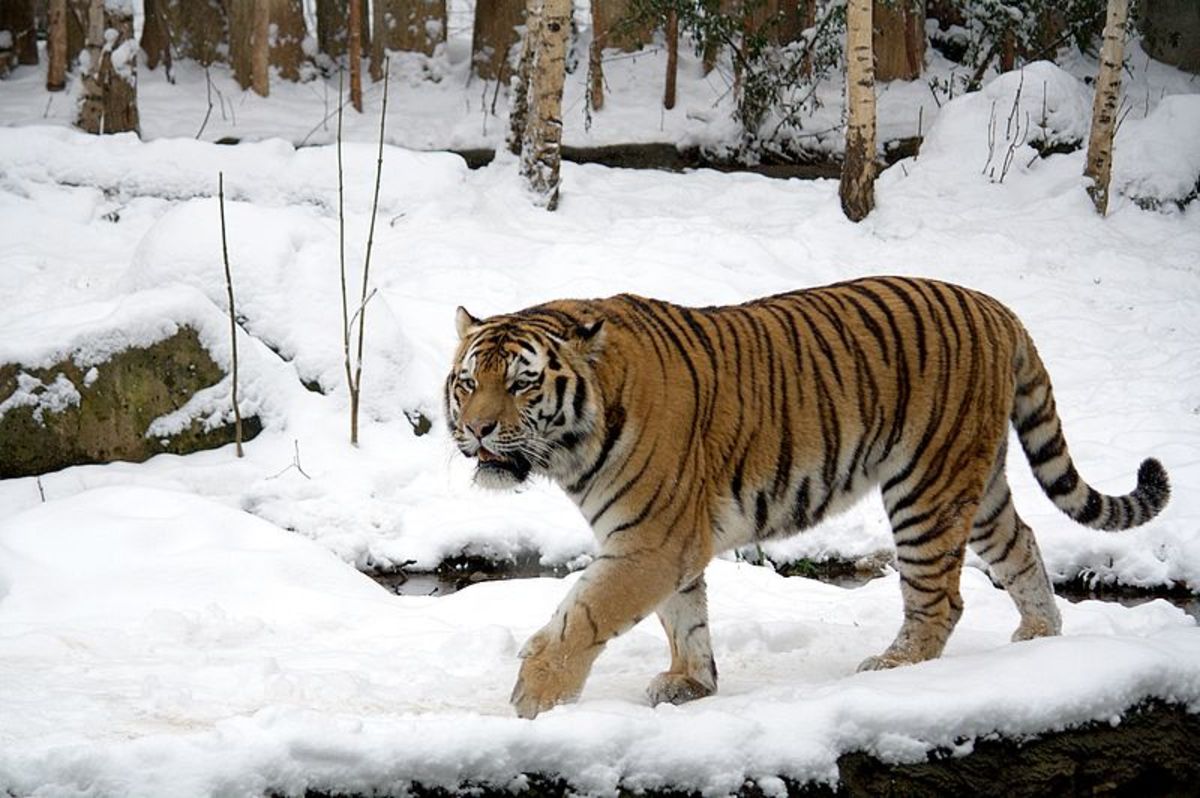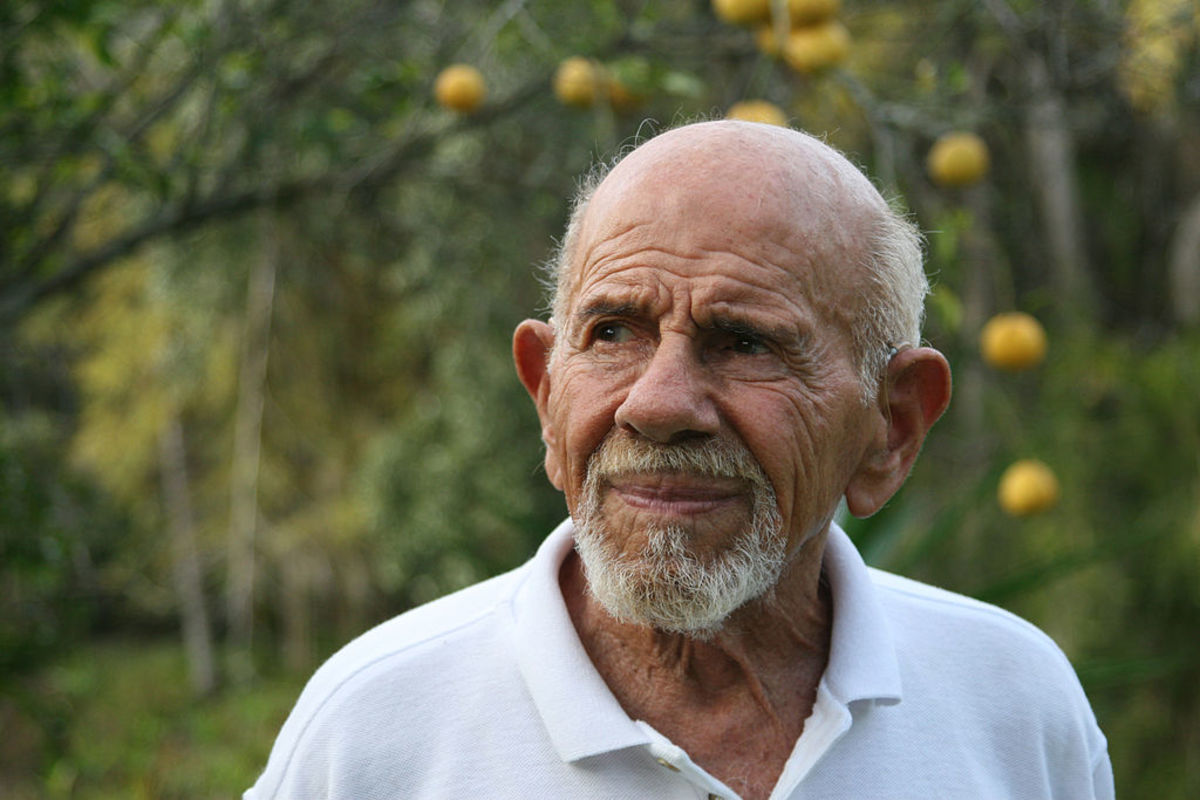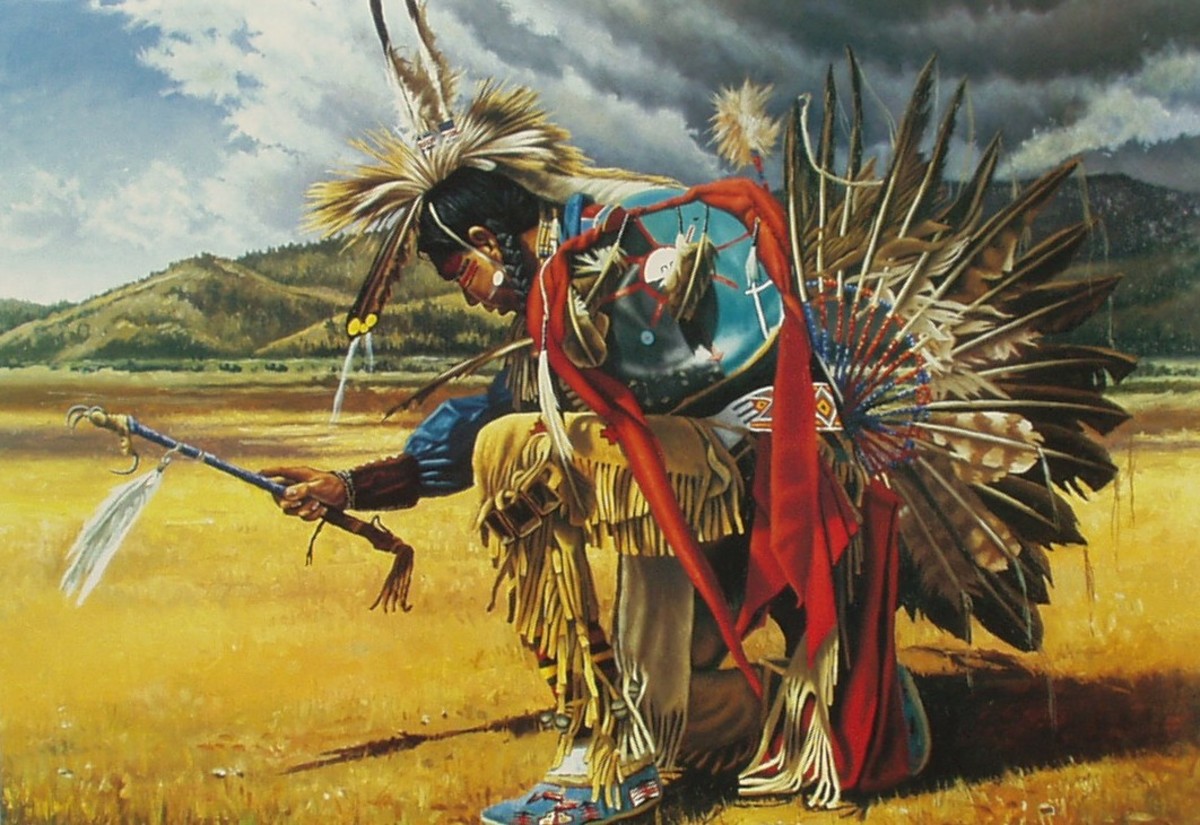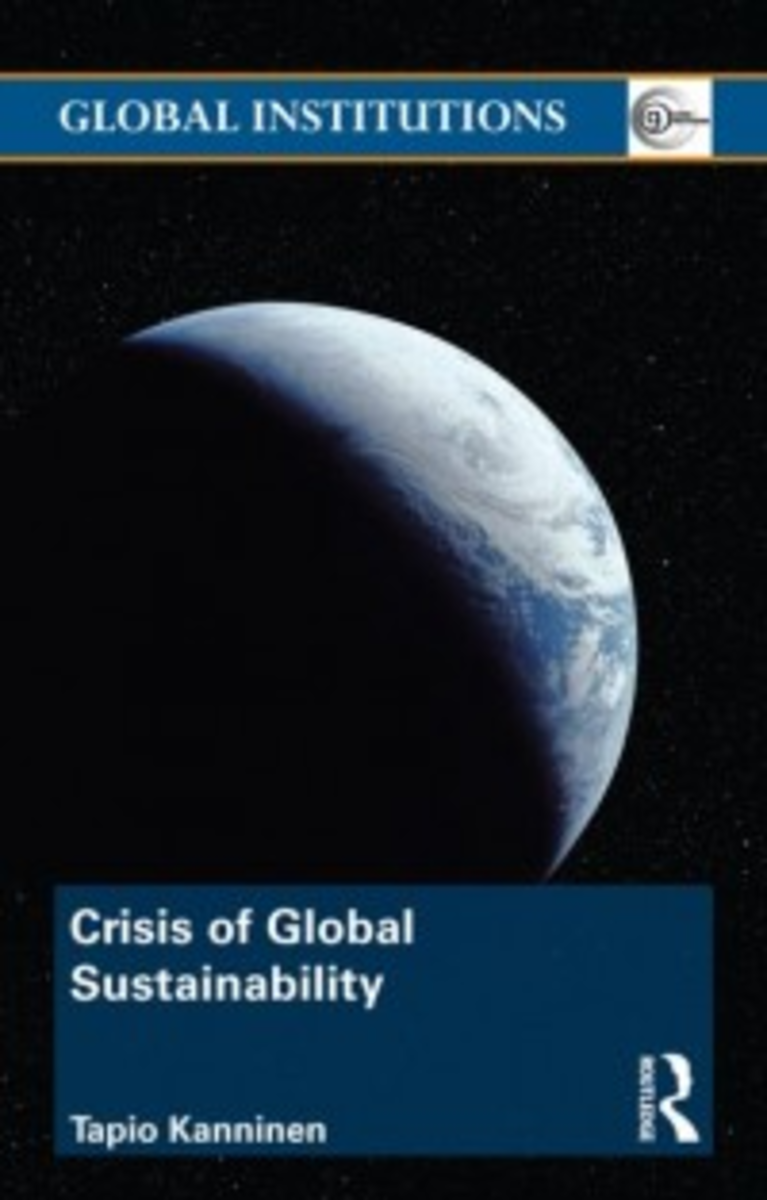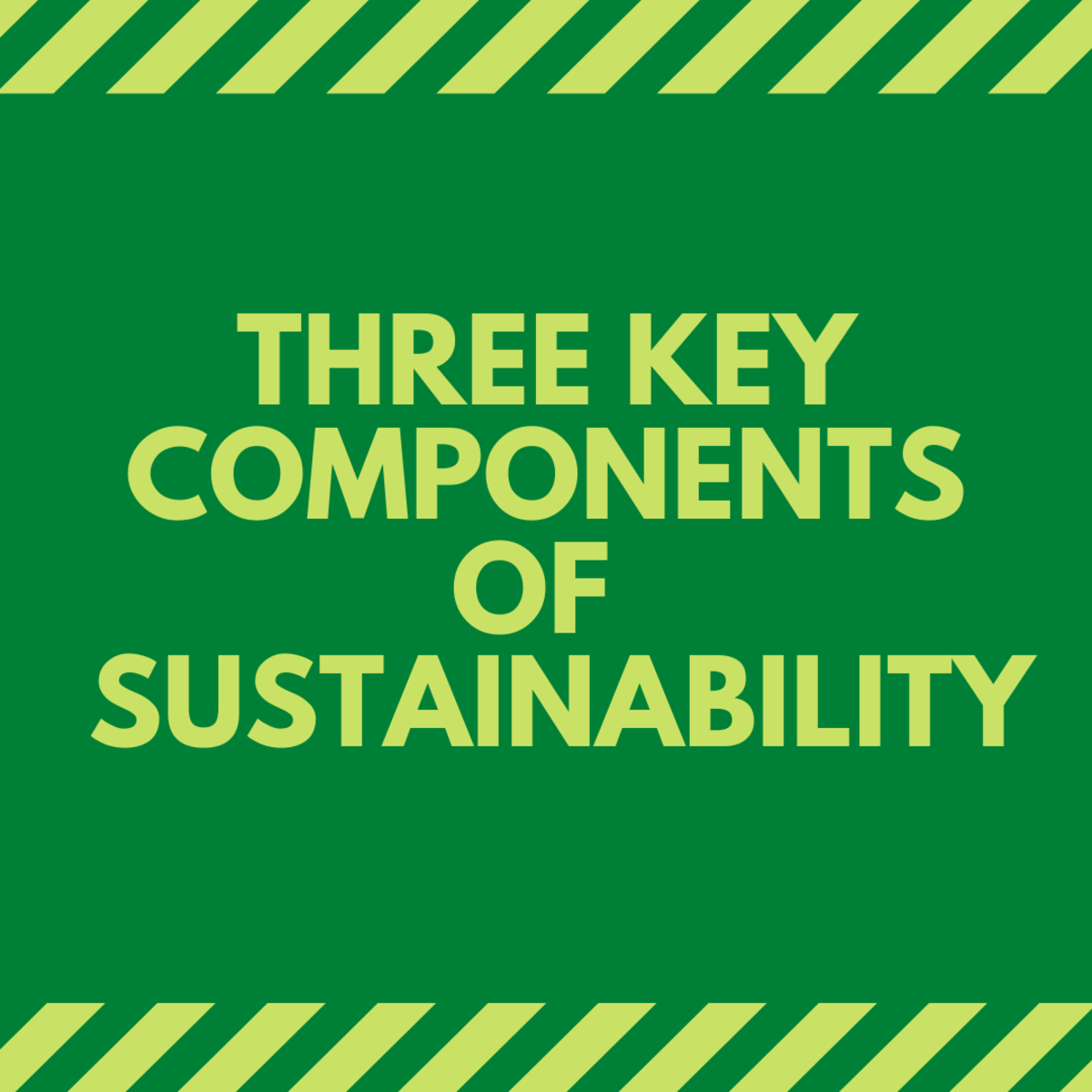Social Collapse
The human race is an endangered species. When you read the not-so-vital statistics of the world we live in, you may wonder if mankind has any real hope for the future.
The human race is an endangered species. But why should you care? You may not feel personally endangered. You may be in good health (perhaps a little overweight), wealthy, well-clothed and secure.
if you are, then you are one of a very small and privileged group. Three quarters of the world's population have NONE of these things and the rest lack at least ONE. For them (with a mere fraction of your education) danger is an everyday fact. They are the present victims of the world-wide system that worships Money. But none of us can expect to escape. We are all caught up in the same system. If we are not victims of it yet, then it is only a matter of time.
The division between rich and poor is an inequality. It is also a great divide. Humanity is divided by privilege causing injustice, gluttony causing hunger and power causing oppression.
THE THIRD WORLD
The industrialised countries of the G7 can hardly complain about any of these problems because they are our fault. The crime is that we are using the rest of the world (the Third World) to pay the price of our stupidity and to delay the inevitable cost to ourselves. The North (about a third of the world's population on a quarter of the earth's surface) has forced the whole world to live its way and as a consequence, the majority of humanity is living with catastrophe now:
- Their present family income may amount to less than one dollar a day
- They live in a hut or a shack without water and electricity
- They are starving and lose every second child
- Their starving children are physically and mentally destroyed by deficiency diseases and there are no doctors available.
THE HIDDEN HISTORY OF TODAY'S WORLD
The division of the world into the rich, industrialised nations of G7 and the poor nations of the Third World is the basis of the world we live in. Everything is affected by it, directly or indirectly. The people and mineral wealth of the Third World fuelled the Industrial Revolution. The Third World's trillion dollar debt ($1,000,000,000,000) provides the basis of the present global economy. And the South manufactures a massive amount of cheap products for the materialistic G7.
Europe built the Industrial Revolution from its profits in two operations: the African and South American were destroyed first by European piracy and then by slavery. After the populations of Central and South America were decimated by European armies, people were needed to extract these countries' wealth - and this was provided by slave brought over from Africa. Soon the whole of European trade was based on the buying and selling of human beings. Europe drained Africa of its riches and used them to fuel the Industrial Revolution. This trade in human lives brought prosperity to Europe and suffering to Africa. It represented a tapping of Africa's bone marrow which afforded absolutely no advantages in return.
This activity still continues today under the disguise of world trade. G7 has used up much of our own mineral wealth. Most of the mineral wealth left resides in the Third World. It also has cheap labour. The relationship between G7 and the Third World is that they sell us their raw materials at prices fixed by us in order to finance their loans with our banks which they took out to buy our higher-priced, value-added products: knowhow, refined goods and, of course, arms. In addition, they also have to deal with the waste materials from our processes.
We could use many examples of capitalist slavery today: copper, platinum, gold, diamonds, etc. And the story would be exactly the same. But we will choose coffee because it brings world injustice right into our kitchens, our factory canteens and our office blocks.
Coffee has an annual value of 」9,000 million and for much of the world, it is a basic form of livelihood. Apart from oil, coffee is the most valuable commodity traded internationally, accounting for about 1/2% of world trade; a position all the more remarkable because the product is neither an essential ingredient in the manufacture of any other product, nor in any way essential to human survival.
Though it is true that coffee is not essential to human survival as a consumer product, it is crucial to the economic survival of many producing nations. Poor countries seeking money for development have to go to international banks for loans which can only be financed by exports. If a country does not have much worth mining or drilling for, it will have to turn to agricultural commodities (cash crops) like coffee. This is why it accounts for 25% or more of the export earnings of eleven producer countries and why it provides employment for more than 20 million people in 50 producer countries - all of them in the Third World.
Growing coffee is an expensive business. It takes four years before a coffee tree bears fruit. During those years the tree needs constant weeding, pruning, manuring and water control. This costs a great deal of money. So, much of the coffee production of Latin America is grown on plantations owned by multinational companies where wages are very low. For example, a Guatemalan plantation worker earns about %u01531 for a 12-hour day. In Brazil, it is a bit better at about %u01531.60 for a full-day. Child labour is very common and there is little provision for health care or education because this would reduce profits. However, in Africa, small peasant farmers produce the majority of coffee where payment is only received for sacks of coffee beans. So, the grower lives in constant fear of the crop being decimated by pests, disease, drought, flood and frosts which can wipe out whole acreages of coffee trees six to eight months before harvest time.
Some of the green, unprocessed coffee beans are bought directly from the country of origin and some through dealers in the London coffee terminal market where their price is fixed. Its members act as middlemen for the coffee beans which are not sold directly to the multinationals. There are thirty five floor members in the market but about two-thirds of all trading business is dealt with by just five dealers.
Prices paid to producer countries vary greatly, but the trend is relentlessly downwards in real terms. "Real terms" does not mean a money price (coffee was US$1.60 per pound in 1978 and only 40 cents in 1950). It means what you can buy in return for that money accounting for inflation. And the cost of goods and services bought by producing nations from us in G7 constantly rises. So, in 1969 a coffee-producing country had to sell 66 bags of coffee to buy a 16 ton truck, but in 1979 it had to sell 123 bags to buy the same truck.
Poverty is not inevitable. It is not due to bad climate or overpopulation but is the direct result of external, multinational forces. These "forces" are far from being beyond the power of humanity - they are the work of humanity. Nor are these forces beyond the power of ordinary people. Every time we buy new clothes, a car or walk into a supermarket, we become part of this huge economic process which causes death and suffering across the entire world.
CONSUMERISM KILLS
Both North and South are victims of Money because they are both sides to the same global economic coin. The solution to one is the solution to the other. You cannot consider solving the problems of one without considering a solution for the problems of the other as well. We all live on one earth and are all subject to one global system of economics.
Underprivilege kills. This is the reason for the problems of the South: we steal their food and resources (offering a very small amount back to them as charity) and they die through the lack of them.
Overprivilege kills too. When you die, it will probably be as the result of a cardiac arrest, cancer or a technologically-based accident. And you will not be alone since these are the greatest killers in G7 and all are to do with overprivilege which has led to overconsumption. The car, the ultimate symbol of privilege, which we use to make our lives easier is killing us in a number of ways. The food that we eat is destroying our bodies. Overconsumption has not made us happy. Greater amounts of food together with the inactive life of modern society has led to cardiac illnesses accounting for more than 50% of deaths in the majority of industrialised countries. Ulcers and heart ailments caused by stress and lung cancer resulting from a need for nicotine are some other symptoms of our unhappiness.
The human race is an endangered species. The worship of Money is costing us our humanity. Almost everyone admits that there is a problem. Those that do not are burying their heads in the sand - they are hoping that if they ignore it, it will go away. Or they just do not care about it while it is someone else's problem.
Almost everyone knows that there is a problem. Every newspaper and every TV news programme tells us. Every day, thousands are dying by abortion. Tens of thousands are dying from starvation. Millions are living with suffering. Aids, cancer, heart failure, hijacking, terrorism, violence in families. The list is endless. The world that we have inherited from those who came before us is not a nice place to live.
There is more. The number of elderly people is increasing. In the North, they are already one-fifth of the population.
FEWER BABIES: The World birth rate is slowing down. In 1950, there were over 36 babies born for every 1,000 people. By 2025, the UN estimates there will be only half that number.
LONGER LIVES: Improvements in health and nutrition mean that people are living longer. Average life expectancy at birth was only 47 in 1960. By 2025, life expectancy is expected to be over 70 years.
GOING ON ALONE: In the industrialised world, women in their 60s outnumber men by 10 to 7. By the time they reach their 80s women outnumber men by 2 to 1.
The owning of wealth and use of resources by the elderly is likely to make them hated by younger people in a depression. This is because younger people believe that they are owed an ever-increasing
standard of living throughout their lives. When they will not get it and yet they see the elderly enjoying the rewards of a lifetime's work, they will feel resentment and will take violent action to put matters "right". In other words,
DEPRESSION + FAMINE + THE ELDERLY = VIOLENT EUTHENASIA
Social Collapse will be accelerated with the collapse of the economic system:
UNEMPLOYMENT: There could be anywhere from 25% (the amount of the Thirties depression) up to 90% unemployed!
HOMELESSNESS: As well as the unemployed, many of the employed will lose their homes for one reason or another. Firstly, the value of both wages and house prices will drop which will leave people with high mortgages that they will be unable to pay. Others will have to give up their homes to banks, building societies and other loan agencies in a fruitless effort to pay off personal loans which have become very popular. Yet others will try to sell their homes in order to buy food just to survive.
STARVATION: Unemployment will leave a lot of people unable to buy food. People will starve even if there is a lot of food around (as millions in the Third World do now) although there will be less then than now because unemployment will also reduce food production to some extent.
GENERAL POVERTY: Even those who manage to keep their jobs will experience a massive reduction in their standard of living. There will be an ever-widening gap between needs and wants. After 40 years of encouraging everyone to be more and more greedy, it is unlikely that these same people will accept any reduction calmly and reasonably.
People badly affected by the Depression will see others less affected and will be angry because they will feel that a great injustice has been done to them. This aggression may be expressed by attacking the better-off which was what happened to the Jews in Nazi Germany.
Further unrest will be due to people seeing friends and relations losing their jobs and being frightened that it will happen to them. It is this unstable situation which is the breeding ground for dictatorships and eventually war.
This unrest will frighten people as much as the Depression. They fear that it will lead to anarchy and will support anyone who looks tough enough to deal with the crisis. He will be treated like a hero despite his harsh methods. It will not matter if others get killed or if we all lose our freedom, just so long as the Depression and the unrest it caused gets dealt with.
DICTATORSHIPS
Democracies are very vulnerable to being taken over by extremist groups. Whether the group is extreme left-wing or extreme right-wing will not affect the way they act. This was well demonstrated by the striking similarities between Nazi Germany and Russia under Stalin - and even under Lenin. They all act the same once they get into power. The only difference is the words they use.
It is amazing to see how many dictatorships sprang up or nearly sprang up during the Thirties. There was: Mussolini in Italy; Oswald Mosely (and possibly King Edward) in England; Father Charles E Coughlin and Fritz Luhn in America; and, of course, Hitler in Germany. How many there will be this time?
Main Hub:Today's Problems, Tomorrow's Crises
Next Hub: Tomorrows Crises: War

